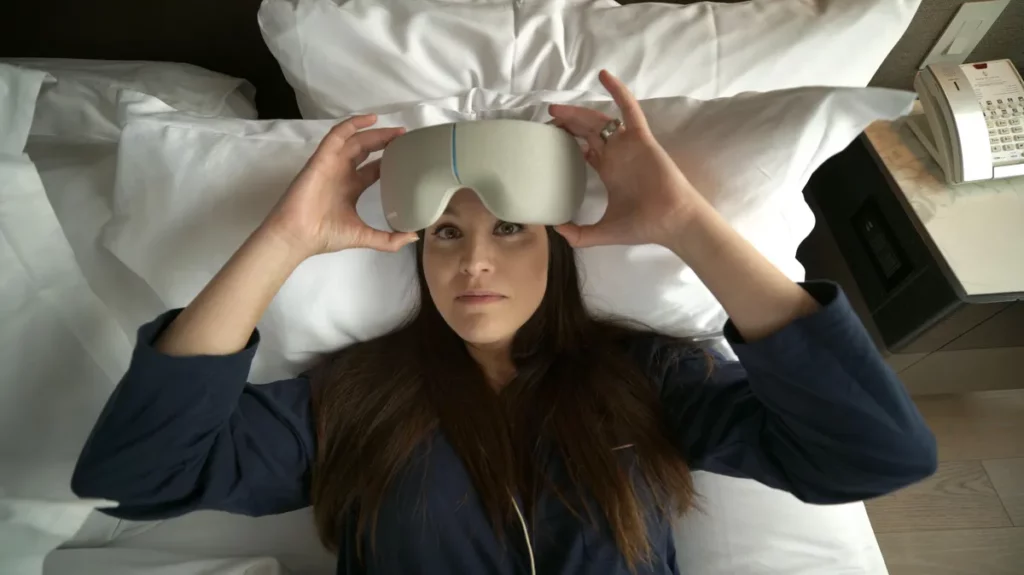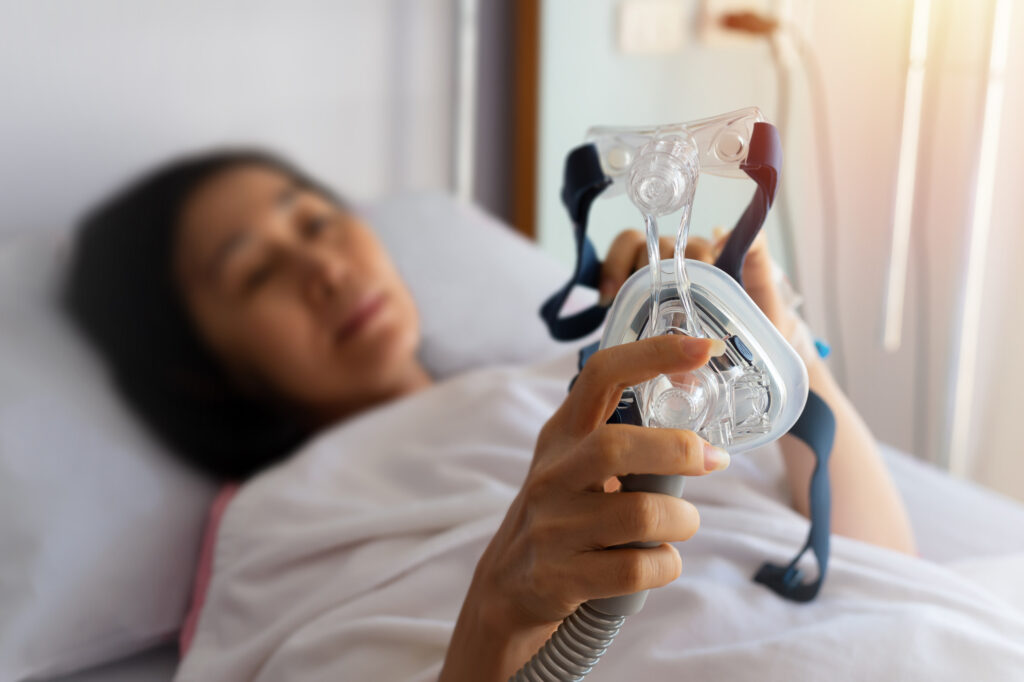Detailed Guide to Sleep Study Costs

A sleep study is a diagnostic test conducted to evaluate and diagnose sleep disorders. It involves monitoring an individual’s sleep patterns, brain waves, breathing, heart rate, and other physiological functions throughout the night. Sleep studies are crucial for identifying underlying causes of sleep disturbances and devising effective treatment plans. However, many people are concerned about the costs associated with these tests. In this comprehensive guide, we will delve into the various aspects of sleep study costs and ways to manage them.
Understanding Sleep Studies
A sleep study, also known as polysomnography, is a non-invasive procedure that takes place in a sleep lab or medical facility equipped with specialized monitoring equipment. It is typically recommended when an individual experiences persistent sleep issues such as excessive daytime sleepiness, snoring, insomnia, or suspected sleep disorders like sleep apnea or narcolepsy. The results of a sleep study help healthcare professionals diagnose and develop appropriate treatment plans.
Several factors can influence the overall sleep study cost. Understanding these factors can help individuals anticipate and manage their expenses.
What is a Sleep Study?
A sleep study involves spending a night or multiple nights in a controlled environment, usually a sleep lab, where trained technicians monitor your sleep patterns and collect data on various physiological parameters. Electrodes are attached to your scalp, face, and body to measure brain activity, eye movements, muscle tone, heart rate, and breathing patterns. The information gathered provides insights into the quality and quantity of your sleep and helps in identifying potential sleep disorders.

Importance of Sleep Studies
Sleep disorders can significantly impact an individual’s quality of life and overall health. Left untreated, they can increase the risk of serious health conditions such as cardiovascular disease, diabetes, obesity, and depression. Sleep studies play a vital role in diagnosing these disorders beyond what can be observed during routine office visits. They provide objective data that helps healthcare professionals accurately identify the underlying causes of sleep problems and develop personalized treatment plans.
During a sleep study, the sleep lab is designed to create a comfortable and relaxing environment that mimics a typical bedroom setting. The room is dimly lit, and the bed is equipped with high-quality mattresses and pillows to ensure optimal comfort. The sleep technicians are trained to make you feel at ease and will explain the procedure to you before the study begins.
Once you are settled in bed, the electrodes are carefully attached to your scalp, face, and body using a mild adhesive. These electrodes are connected to a monitoring device that records your brain waves, eye movements, muscle activity, heart rate, and breathing patterns throughout the night. The data collected is then analyzed by sleep specialists who interpret the results and provide a comprehensive report to your healthcare provider.
It is important to note that sleep studies are safe and painless. The electrodes used are non-invasive and do not cause any discomfort. The sleep technicians are always available to address any concerns or questions you may have during the study. The information obtained from the sleep study is crucial in guiding the appropriate treatment options for your specific sleep issues.
Read about sleep study results at: Tips for Understanding Sleep Study Processes and Results
Breaking Down Sleep Study Costs
Understanding the breakdown of sleep study costs can help individuals make informed decisions and plan their healthcare expenses. Sleep study costs typically include professional fees, facility charges, and equipment costs.
When it comes to professional fees, it’s important to recognize the expertise and specialized training that sleep study healthcare professionals bring to the table. Sleep physicians undergo extensive education and training to diagnose and treat various sleep disorders, ensuring that patients receive accurate and effective care. Sleep technologists play a crucial role in administering the study itself, monitoring patients throughout the night, and ensuring the data collected is of the highest quality.
Professional Fees
Professional fees are the charges for the time and expertise of the healthcare professionals involved in conducting and interpreting the sleep study. This includes the fees for the sleep physician, sleep technologist, and other medical professionals involved in the evaluation and diagnosis process. The specific fee structure may vary based on the complexity of the study and the healthcare provider. Find more about complexity at https://pages.cs.wisc.edu/~vernon/cs367/notes/3.COMPLEXITY.html
Moreover, the collaborative nature of sleep studies often involves multidisciplinary teams, including pulmonologists, neurologists, and respiratory therapists, who contribute their unique perspectives to ensure comprehensive care for patients. These professionals work together to analyze the results of the sleep study, provide accurate diagnoses, and develop personalized treatment plans tailored to each individual’s needs.
Facility Charges
Facility charges refer to the costs associated with using the sleep lab or medical facility for conducting the sleep study. This includes the overhead costs of equipment maintenance, utilities, rent, and administrative expenses. Facility charges may vary depending on the location and reputation of the facility.
Furthermore, the environment of the sleep lab itself plays a significant role in ensuring the comfort and safety of patients undergoing the study. Sleep labs are designed to create a relaxing and conducive atmosphere for sleep, with amenities such as comfortable beds, soundproofing, and ambient lighting to mimic a home-like setting. These elements are carefully curated to promote natural sleep patterns and facilitate accurate data collection during the study.
Equipment Costs
Equipment costs encompass the expenses associated with the sleep monitoring devices and instruments used during the study. These include electrodes, sensors, monitoring equipment, and software used to collect and analyze the sleep data. The equipment costs can vary depending on the type of study being conducted and the technological advancements utilized.
State-of-the-art equipment is essential for capturing detailed sleep data, monitoring vital signs, and detecting any abnormalities that may indicate underlying sleep disorders. The continuous advancements in sleep monitoring technology have led to more precise and efficient data collection, allowing healthcare professionals to make accurate diagnoses and tailor treatment plans with greater precision. Investing in high-quality equipment not only ensures the reliability of the study results but also enhances the overall patient experience by providing comprehensive and insightful sleep evaluations.
Factors Influencing Sleep Study Costs
When considering the cost of a sleep study, it’s important to delve deeper into the intricacies that contribute to the final bill. Beyond the basic parameters of brain waves, oxygen levels, and heart rate monitoring, some specialized sleep studies may involve additional complexities that warrant a higher price tag. For instance, studies like multiple sleep latency tests (MSLT) or maintenance of wakefulness tests (MWT) require more sophisticated equipment and longer monitoring periods, leading to increased costs.
Type of Sleep Study
The complexity and type of sleep study being conducted can impact the costs. Basic sleep studies that monitor essential sleep parameters such as brain waves, oxygen levels, and heart rate are generally less expensive compared to advanced studies that involve additional monitoring, such as multiple sleep latency tests (MSLT) or maintenance of wakefulness tests (MWT).
Moreover, the expertise and specialization of the healthcare professionals overseeing the sleep study can also influence the overall cost. Facilities with board-certified sleep specialists or those affiliated with academic institutions may charge higher fees for their services, reflecting the advanced level of care and interpretation provided. Click here to read more about reflecting.
Insurance Coverage
Insurance coverage plays a crucial role in determining out-of-pocket expenses for sleep studies. Different insurance plans have varying levels of coverage for diagnostic tests, including sleep studies. It is essential to consult with your insurance provider to understand the extent of your coverage and any cost-sharing requirements, such as copayments, deductibles, or coinsurance.
Geographic Location
The geographic location of the sleep lab or medical facility can influence the cost of a sleep study. Urban areas or regions with a higher cost of living may have higher facility charges compared to rural or less populated areas. It is worth exploring multiple options and considering travel if significant cost differences are apparent.
Furthermore, the reputation and accreditation status of the sleep center can also impact pricing. Accredited facilities that adhere to stringent quality standards and employ the latest technologies may command higher fees due to their commitment to providing top-notch care and accurate diagnostic results.

Ways to Manage Sleep Study Expenses
While sleep study costs may seem daunting, there are several strategies individuals can employ to manage and reduce their expenses. In this section, we will delve deeper into these strategies and provide you with additional information to help you make informed decisions.
Health Insurance Negotiations
If you have health insurance, it is essential to engage in proactive communication with your insurance provider. Discuss the coverage options for sleep studies and explore whether the facility and healthcare professionals you prefer are in-network, as out-of-network providers may result in higher out-of-pocket costs. Additionally, understand the specific documentation and pre-authorization requirements to ensure smooth processing of your claim.
When negotiating with your health insurance provider, it can be helpful to gather supporting documents such as medical records, referrals from your primary care physician, and any relevant test results. This information can strengthen your case for coverage and potentially lead to a more favorable outcome. Remember, insurance companies want to ensure that their policyholders receive necessary medical care, so don’t hesitate to advocate for yourself.
Payment Plans and Financing Options
If the cost of a sleep study exceeds your immediate budget, inquire about payment plans or financing options offered by the sleep lab or medical facility. Some providers may offer flexible payment arrangements, allowing you to spread the cost over an extended period. It is important to compare the terms and conditions, including any interest or fees associated with these payment plans.
Furthermore, certain medical facilities may have partnerships with financial institutions that specialize in healthcare financing. These partnerships can provide you with additional options and potentially more favorable terms. Be sure to inquire about these possibilities and assess whether they align with your financial goals and capabilities.
Low-Cost or Free Sleep Study Options
In some cases, individuals may be eligible for low-cost or free sleep study options. Research local university medical centers or nonprofit organizations that conduct research in sleep disorders, as they may offer clinical trials or studies that provide reduced-cost or free diagnostic testing. However, it is crucial to assess the qualifications and credentials of the facility and medical professionals involved in such studies.
When considering low-cost or free sleep study options, it is important to weigh the potential benefits against the potential risks. While these studies can provide valuable insights and cost savings, ensure that the facility and professionals involved adhere to rigorous ethical and safety standards. Additionally, carefully review any consent forms and understand the potential implications of participating in research studies.
By understanding the various aspects of sleep study costs and exploring the available options, individuals can make informed decisions that balance their healthcare needs and financial well-being. Prioritizing sleep health through timely diagnosis and treatment is an investment in overall health and quality of life.
